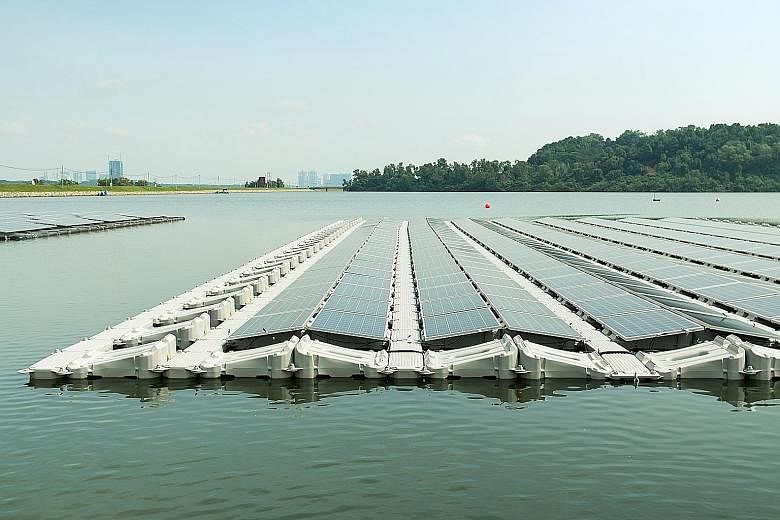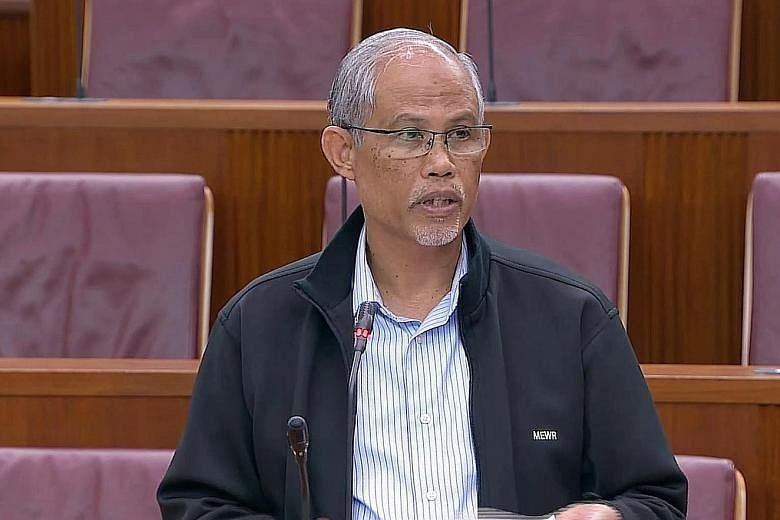Singapore is pulling out all the stops to buffer its small and open economy against the shock waves of climate change, from ramping up efforts to curb heat-trapping emissions to protecting its coastlines and growing eco-awareness in homes.
Minister for the Environment and Water Resources (MEWR) Masagos Zulkifli yesterday gave an overarching view of how the nation aims to cope in a warming world, by putting sustainability at its very core.
"Only by living and practising sustainability together can we mitigate the impacts of climate change and secure the resources needed to take Singapore into the future," he told Parliament.
One critical way of doing this is by reducing harmful greenhouse gases. "Every country, large or small, must do its share to reduce greenhouse gas emissions," he said.
Last month, Singapore announced a new long-term target of halving the emissions it produces from their 2030 peak by 2050, with the aim of achieving net-zero emissions as soon as viable in the second half of the century.
In the nearer term, Singapore wants its emissions to peak at 65 million tonnes by 2030. This means that even if the economy grows, the emissions produced should not.
To do its part in support of the Paris Agreement - a climate pact among almost 200 nations in 2015 - Singapore will take additional steps to reduce its emissions on top of existing schemes such as the carbon tax, said Mr Masagos during the debate over his ministry's budget.
Singapore will be implementing more measures to reduce the emission of greenhouse gases in various sectors, including households. For instance, it will introduce a new Commercial Vehicle Emissions Scheme for new light goods vehicles, which make up the largest proportion of commercial vehicles.
Efforts will also be made to reduce the release of hydrofluorocarbons (HFCs), greenhouse gases that have greater warming potential than carbon dioxide, the main greenhouse gas driving climate change. HFCs can be found as refrigerants in refrigeration and air-conditioning equipment, and could leak during installation, maintenance and disposal.
Measures include a new course to train and certify technicians to handle refrigerants properly, and mandating the proper recovery, reclamation and destruction of spent refrigerants from next year.
MEWR will also take the lead in cutting its carbon footprint, said Mr Masagos, by aiming to generate sufficient energy from waste incineration and solar systems to power all of his ministry's needs.
For example, national water agency PUB's five water treatment plants - Choa Chu Kang, Bedok, Chestnut, Lower Seletar and Woodleigh, as well as Marina Barrage - will be powered fully by renewable energy once the floating solar photovoltaic system on Tengeh Reservoir is built.
To involve households in the quest to cut the nation's carbon footprint, the Government will introduce a $24.8 million Climate-Friendly Household Package. Households in one-to three-room Housing Board flats will receive a one-off $150 voucher to purchase more energy-efficient refrigerator models.
Singapore will also be taking steps to adapt to the changing climate.
This year, the Republic will start its first coastal protection studies to determine the type, feasibility and extent of measures required to protect it from rising seas, Mr Masagos said.
And to improve local agriculture so the nation is resilient to disruptions in the global food supply, the Singapore Food Agency will study how farming on land and in the sea can be increased, he said.
Tackling climate change requires all hands on deck, he stressed.
"Let us all play our part and work together, as one people, to ensure that Singapore remains a liveable home for our future generations."



